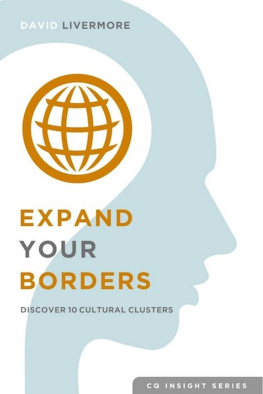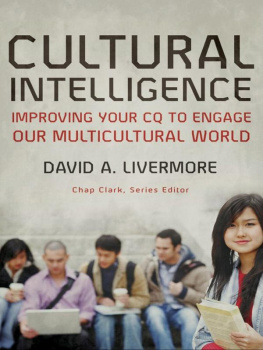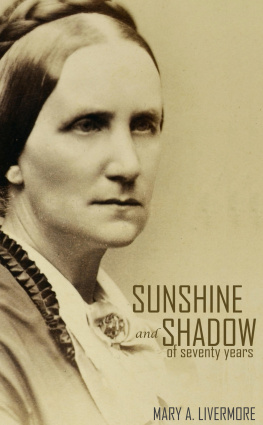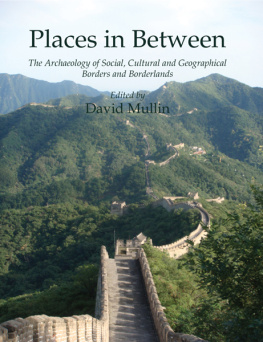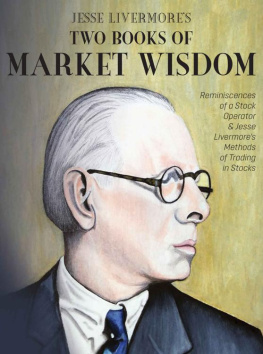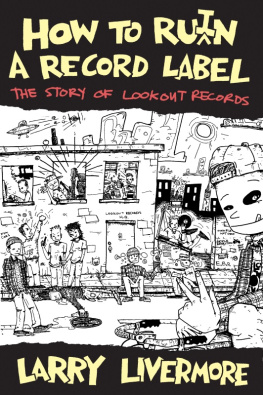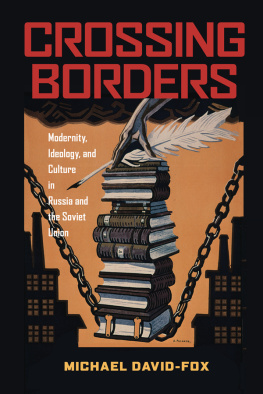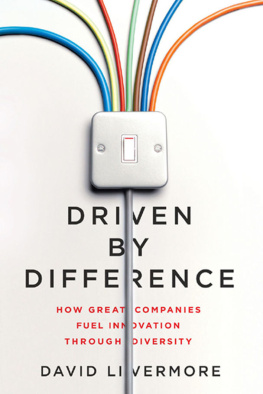David A. Livermore - Expand Your Borders: Discover Ten Cultural Clusters (CQ Insight Series Book 1)
Here you can read online David A. Livermore - Expand Your Borders: Discover Ten Cultural Clusters (CQ Insight Series Book 1) full text of the book (entire story) in english for free. Download pdf and epub, get meaning, cover and reviews about this ebook. year: 2013, publisher: Cultural Intelligence Center, genre: Politics. Description of the work, (preface) as well as reviews are available. Best literature library LitArk.com created for fans of good reading and offers a wide selection of genres:
Romance novel
Science fiction
Adventure
Detective
Science
History
Home and family
Prose
Art
Politics
Computer
Non-fiction
Religion
Business
Children
Humor
Choose a favorite category and find really read worthwhile books. Enjoy immersion in the world of imagination, feel the emotions of the characters or learn something new for yourself, make an fascinating discovery.
- Book:Expand Your Borders: Discover Ten Cultural Clusters (CQ Insight Series Book 1)
- Author:
- Publisher:Cultural Intelligence Center
- Genre:
- Year:2013
- Rating:3 / 5
- Favourites:Add to favourites
- Your mark:
- 60
- 1
- 2
- 3
- 4
- 5
Expand Your Borders: Discover Ten Cultural Clusters (CQ Insight Series Book 1): summary, description and annotation
We offer to read an annotation, description, summary or preface (depends on what the author of the book "Expand Your Borders: Discover Ten Cultural Clusters (CQ Insight Series Book 1)" wrote himself). If you haven't found the necessary information about the book — write in the comments, we will try to find it.
Expand Your Borders: Discover Ten Cultural Clusters (CQ Insight Series Book 1) — read online for free the complete book (whole text) full work
Below is the text of the book, divided by pages. System saving the place of the last page read, allows you to conveniently read the book "Expand Your Borders: Discover Ten Cultural Clusters (CQ Insight Series Book 1)" online for free, without having to search again every time where you left off. Put a bookmark, and you can go to the page where you finished reading at any time.
Font size:
Interval:
Bookmark:
CQ INSIGHTS SERIES
When cultural intelligence (CQ) is increased, diverse perspectives create better solutions. The CQ Insights Series examines the specific knowledge, skills, and behaviors involved in developing cultural intelligence (CQ). The series includes resources devoted to the four capabilities of cultural intelligence (CQ Drive, CQ Knowledge, CQ Strategy, CQ Action) and other specific applications for improving and applying CQ. This is the first book in the CQ Insights Series and its focused on improving CQ Knowledge.
2013 by David Livermore
Published by Cultural Intelligence Center, LLC
5337 Panda Bear Circle
East Lansing, Michigan 48823
Printed in the United States of America. All rights reserved.
This publication may not be reproduced, stored in a retrieval system, or transmitted in whole or in part, in any form or by any electronic, mechanical, photocopying, recording, or otherwise, without the prior written permission of the publisher. The only exception is brief quotations in printed reviews.
Library of Congress, Cataloging-in-Publication Data
Livermore, David, A., 1967
Expand your borders: discover ten cultural clusters / David Livermore
p. cm.
ISBN-13: 978-0-9897817-1-8
1. Cultural intelligence. 2. LeadershipCross-cultural studies. 3. Cross-cultural orientation. 4. Intercultural communication. 5. Diversity in the workplace. 6. National characteristics. I. Title.
ABOUT THE CULTURAL INTELLIGENCE CENTER
We help individuals, corporations, and organizations reach their global potential by helping them assess and develop their cultural intelligence (CQ). Visit www.culturalQ.com for more information.
Cover and Inside Design: Micah Kandros Design
Photos unless otherwise noted: Emily Livermore
CONTENTS
APPENDICES
My colleagues and I have spent the last several years asking the question, Whats the difference between those who are culturally intelligent and those who arent? Cultural intelligence, or CQ, is defined as the capability to be effective across different cultural contextsincluding national, ethnic, generational, organizational, and other contexts. (See Appendix A for a quick overview of cultural intelligence).
One of our key findings is that the culturally intelligent have a good grasp of overarching patterns that exist across various cultures around the world. Its not that the culturally intelligent are walking encyclopedias who can spout off random facts about any culture on the planet. Thats impossible. But they have a macro understanding of cultural similarities and differences, something we identify as CQ Knowledgeone of the four capabilities of cultural intelligence. CQ Knowledge is the degree to which you understand how culture influences how people think and behave; its also your level of familiarity with how cultures are similar and different. While this kind of understanding alone doesnt make you culturally intelligent, it is a vital part of becoming more effective across different cultural contexts.
Ten Cultural Clusters
One way to improve your CQ Knowledge is to learn the key characteristics of ten global cultural clusters, which are large cultural groupings that share some core patterns of thinking and behavior. The countries and groupings of people within each cluster typically share a common history, and they often share similar geography, language, religion, or cultural values.
Grouping people in these cultural clusters is an idea that emerged from the work of Simcha Ronen and Oded Shenkar
These ten clusters are by no means an exact or exhaustive grouping of the thousands of cultures that exist across the world, but they provide a helpful starting point for those of us who travel widelybut not necessarily deeplyinto various multicultural contexts.
In the next several pages, Im going to take you on a whirlwind tour through each of these ten clusters and give you a few snapshots of each one. Were only going to stop briefly at each place. But this kind of quick overview can help enrich your global perspective and cultural intelligence.
As we look at these ten clusters, remember that the countries listed in each are just a sampling of the ones other researchers have included in these groupings. In addition, Ive assigned an icon to each cluster that well use to loosely describe key characteristics of many people living in that cluster.
Caution!
How does a cultural cluster evolve? Its usually the result of a combination of factors, including geography, language, religion, and history. Each cluster is a loose, but connected group that shares some general similarities. Within each of the ten clusters, plenty of differences exist. Ill point out some of the outliers and differences as we travel through these clusters. Remember, these arent perfect classifications, but Ive used the groupings created by other researchers who have spent extensive time identifying and examining these ten clusters (e.g. Ronen and Shenkar, GLOBE study, etc.).
Dont get too caught up in whether a country fits perfectly within the cluster where its categorized. Instead, look for the broad, overarching patterns within each cluster that will give you a reference point for comparing one cultural perspective with another. Youll often meet people in these ten clusters who are a combination of multiple backgrounds. In Canada, for example, an individual may have origins in the Anglo, Sub-Saharan African and Southern Asian clusters. Or in Turkey, someone might easily share aspects of the Arab, Southern Asian, and European clusters. The ten clusters are simply a place to begin comparing one predominant worldview with another. As you develop a deeper understanding of the clusters similarities and differences, youll find yourself more adept at handling all kinds of intercultural situations.
As we look at each cluster, Ill offer you some practical tips for interacting effectively with its people. All of the usual cautions about not stereotyping apply here. Its dangerous to assume that all Norwegians like fish or that all Koreans prefer hierarchical leaders, but its even more dangerous to assume that you can categorize more than seven billion people into ten general clusters. And its never appropriate to describe an entire cultural group with negative, judgmental descriptions, such as ___ people are all lazy and corrupt.
So why even talk about clusters, and overall patterns and norms for people from various cultures? Because theres value in something that cross-cultural psychologists Joyce Osland and Allan Bird describe as sophisticated stereotypesbroad comparative differences based on empirical intercultural research. For example, research demonstrates that the majority of people in India prefer a more directive style to leadership, while the majority of people in Sweden dont. But youll meet Indians working in Silicon Valley (and Delhi!) who are an anomaly to those norms. The same is true for the Swedes you meet.
Sophisticated stereotypes, such as those that stem from understanding the ten cultural clusters, are most helpful when they are:
- Used to compare various cultures rather than to understand the behavior of a singular culture
- Consciously held
- Descriptive not evaluative
- Used as a best first-guess prior to having direct information about specific people
- Modified based upon further observations and experience
Sophisticated stereotypes based on the ten cultural clusters are just one part of building your CQ Knowledge. Its also helpful to learn about cultural differences that exist within generations, organizations, a countrys various regions, and more. This book, however, is focused on building your CQ Knowledge by understanding the general characteristics of these ten global cultural clusters.
Next pageFont size:
Interval:
Bookmark:
Similar books «Expand Your Borders: Discover Ten Cultural Clusters (CQ Insight Series Book 1)»
Look at similar books to Expand Your Borders: Discover Ten Cultural Clusters (CQ Insight Series Book 1). We have selected literature similar in name and meaning in the hope of providing readers with more options to find new, interesting, not yet read works.
Discussion, reviews of the book Expand Your Borders: Discover Ten Cultural Clusters (CQ Insight Series Book 1) and just readers' own opinions. Leave your comments, write what you think about the work, its meaning or the main characters. Specify what exactly you liked and what you didn't like, and why you think so.

